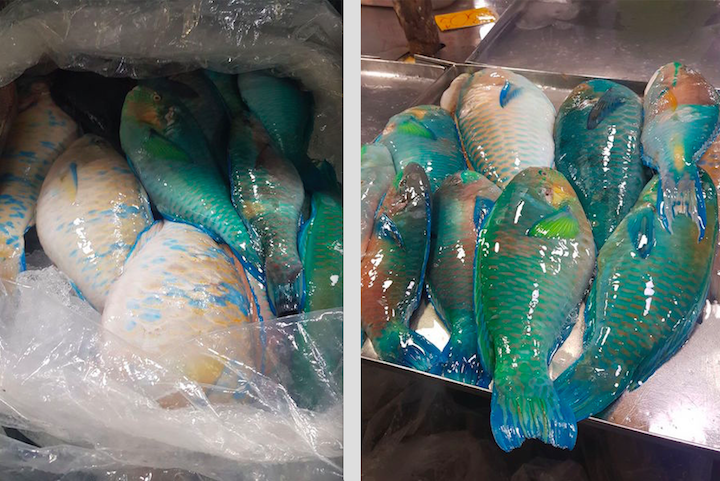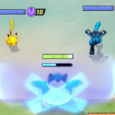The topic of parrotfish recently went viral when Reg Carlotta, a deep sea diver, came across the surprising sight of the colorful fishes being sold in a market. She was horrified to see that that people have actually begun to catch and sell these fishes.
In her post, she explains their vital importance to the ocean and its regeneration.
(The Yangtze Giant Softshell Turtle Nears Extinction as One of the Last Four of Its Kind Dies)
Photo courtesy of Reg Carlotta
Before she left the market she stopped to tell the vendors: “That’s not good, and that’s not right.” While there are no health hazards to eating these fish, she clarifies that the oceans need these fish more than we do. Other kinds of fish can always be bought and sold, but these fish have a unique purpose. She quotes a web source and writes:
Parrotfish eat algae and dead coral*. They spend up to 90% of their day nibbling. In other words, they clean the reef. This is important because most of the reefs across the tropics are being smothered by algae because there are not enough parrotfish and other herbivores out there grazing.
After all that eating, get this: They poop fine white sand – lots of it! Each parrotfish produces up to 320 kilograms (700 pounds) of sand each year.
Their numbers are so depleted, and algae levels are so high, that they cannot be fished sustainably right now anywhere in the Caribbean. These flamboyant, algae-eating, sand-pooping fish need to be left in the water. And when they are left to chomp away, they do a brilliant job. A massive new report concludes that reefs, where parrotfish were abundant in the 1980s, are the reefs that are healthy now.
(60 billion sachets and 17.5 billion plastic bags are thrown each year in the Philippines)
She ends her post with a plea for the government to educate our fishermen and fishing communities. Since their reason for existence goes beyond satisfying the food chain, she proposes that perhaps there should be special rules in place which disallow or limit catching these fish.
What do you think about the conservation efforts for these parrotfish?





